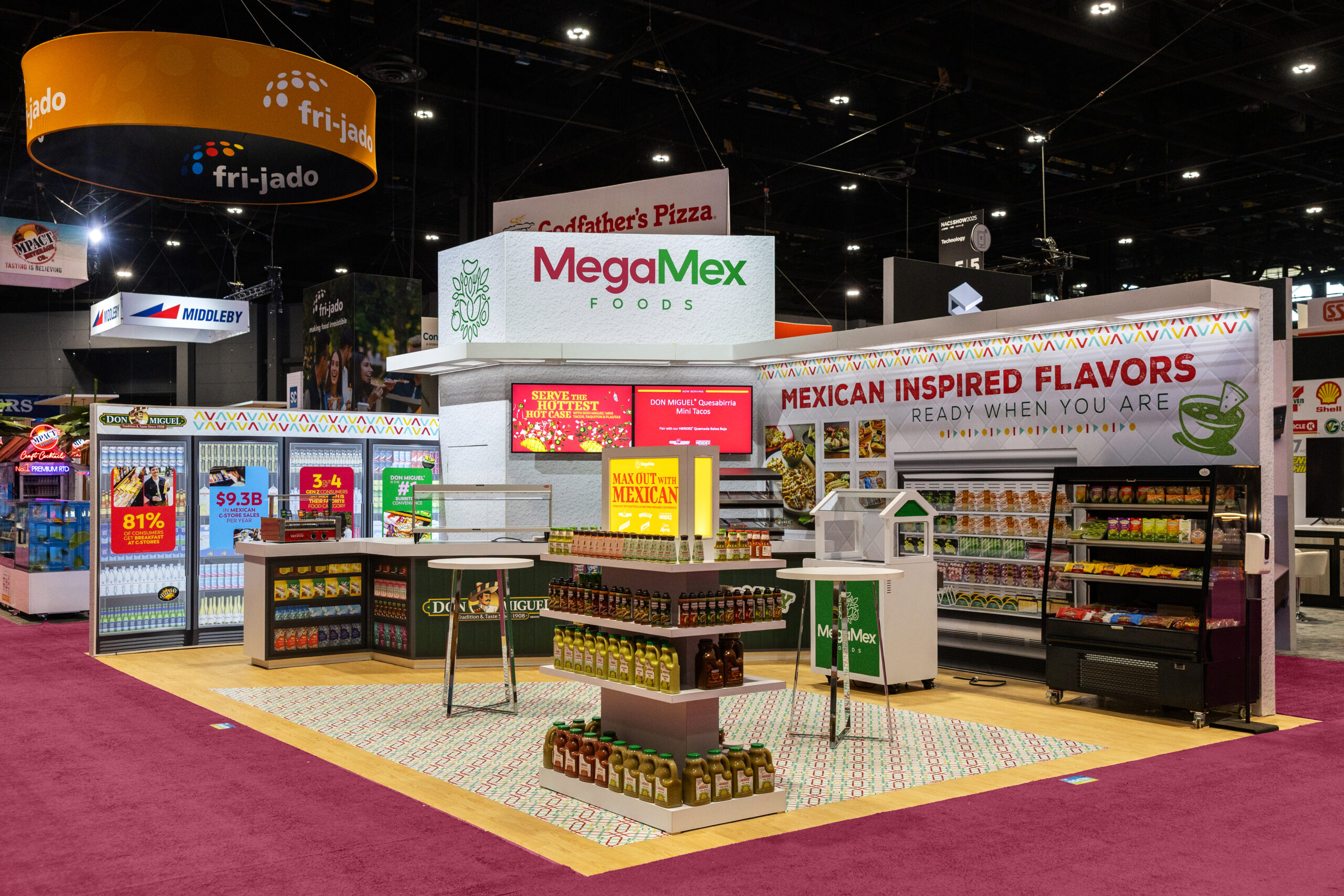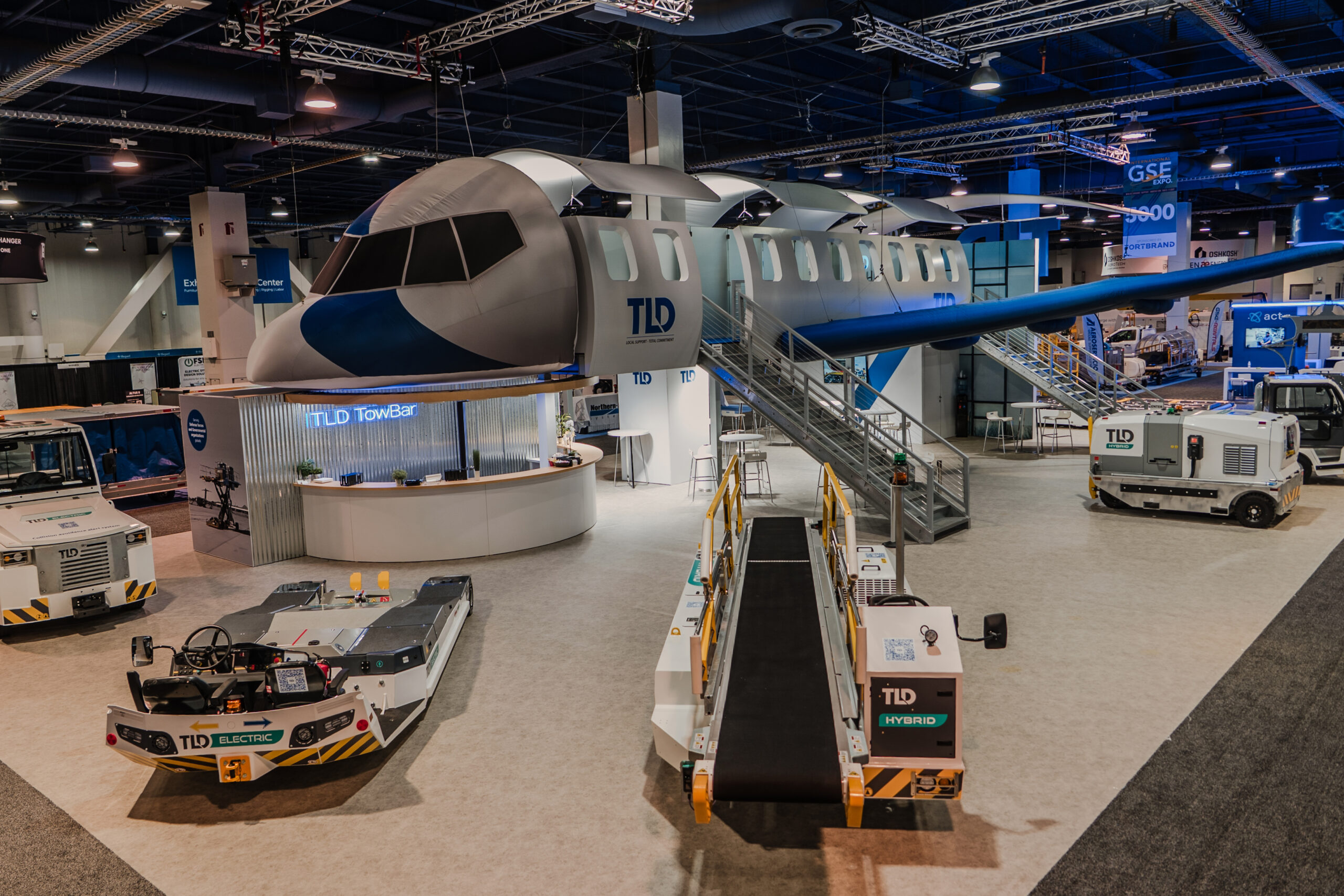Trade shows require careful planning, and one of the most challenging parts is creating a budget. Because so many variables are involved, it can be easy to underestimate costs or overspend in the wrong areas. However, with a clear framework, you can predict expenses more accurately, allocate wisely, and avoid common pitfalls.
Budget Cheat Sheet
| Category | Typical share | Notes |
|---|---|---|
| Booth space | 30–40% | Floor fee to organizer. Prefer visibility over raw square footage. |
| Exhibit design and build/rental | 25–35% | System builds from about $65/sq ft; custom often $100–$150+ per sq ft. |
| Show services | 10–20% | Electrical, internet, rigging, drayage, cleaning, lead capture. |
| I&D labor and supervision | 8–15% | Union rates, overtime, marshaling, target times, paperwork. |
| Travel and personnel | 10–20% | Airfare, hotels, per diem, overtime compliance, badges. |
| Marketing and events | 5–10% | Attendee outreach, ads, collateral, in-booth activations. |
| Contingency | 5–10% | Weather delays, reprints, last-minute services. |
Space: Cap It Early
Booth space is your first and largest cost. Therefore, you should never let it exceed 40% of your budget. Bigger space is tempting, but overspending here often forces exhibitors to cut corners on design and engagement. Instead, prioritize location and visibility over sheer size. For example, an end-cap booth with clear sightlines can outperform a larger but poorly positioned space.
Exhibit: Set Scope and Unit Costs
Once you know your space, determine what type of booth you can afford. As a rule of thumb, system or hybrid builds cost around $65 per square foot, while custom exhibits typically range from $100 to $150+ per square foot. In addition, advanced features such as double decks or LED walls will push costs higher. Because of this, it is essential to establish must-haves versus nice-to-haves with your exhibit house. Many exhibitors, for instance, choose partners like Absolute Exhibits for fixed-price guarantees that eliminate surprise bills.
Show Services: Budget the Invisible
Beyond booth construction, shows require services such as electric, internet, rigging, drayage, and cleaning. These line items are often overlooked, yet they can add $10,000–$20,000 depending on booth size. Therefore, always confirm estimates in advance and pre-order where possible. By doing so, you can avoid on-site markups and last-minute stress.
I&D: Plan Hours, Not Hope
Installation and dismantle (I&D) labor is another major cost. Complex booths with towers, glass, or lighting can take 12+ hours to set up, which drives up hours. Consequently, you need to budget realistically for union rates, overtime, and supervision. In addition, request hour estimates from your exhibit partner to ensure your schedule aligns with cost projections.
People: Right-Size the Crew
Travel and personnel can quickly consume more of the budget than expected. For example, bringing 20 staff members when you only need 8 wastes money on flights, hotels, and meals. Instead, focus on sending trained, outgoing staff who can generate ROI. Furthermore, check labor laws for hourly workers to avoid overtime or compliance penalties.
Marketing: Drive Traffic Before Day One
Even the best booth will underperform without promotion. As a result, you should budget for pre-show marketing campaigns, attendee list outreach, and digital ads such as geofencing. In addition, in-booth activations like demos or giveaways should align with the message you promoted before the show.
Quick Cost-Control Checklist
- Confirm what “all-in” includes: I&D, services, freight, supervision.
- Lock drawings before graphics go to print.
- Pre-order services and material handling to reduce premiums.
- Ship consolidated crates with clear labels.
- Set daily spend limits for staff meals and transport.
- Hold a 5–10% contingency fund and require approval to use it.
Final Thought
Determining a trade show budget is never simple. However, by following proven cost allocations, using realistic unit pricing, and planning for hidden expenses, you can avoid financial surprises and focus on maximizing ROI. A thoughtful approach—supported by the right exhibit house—ensures your investment delivers results.




